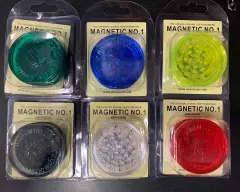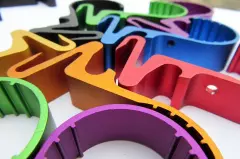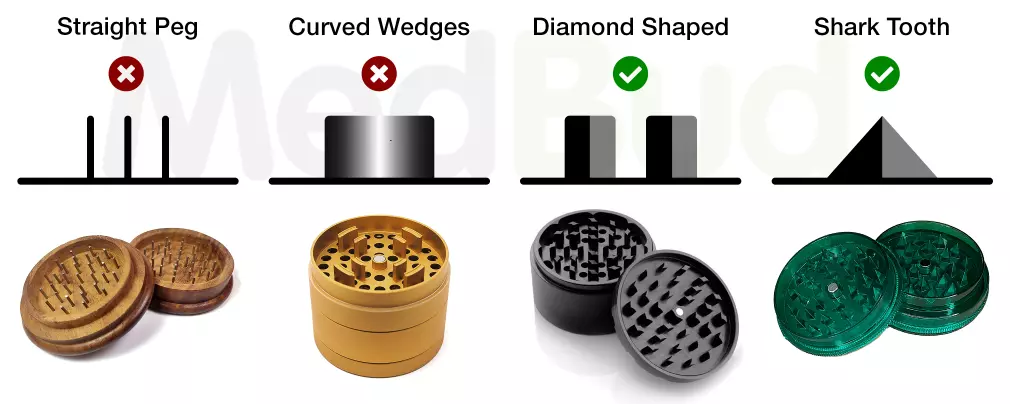As prescriptions are written, dosing directions can be extremely exacting. You're likely to see instructions similar to 'vape 0.X/g as required to a maximum of X/g daily.' For this reason most medical cannabis patients require accurate precise scales to be sure of dosage. We strongly recommend scales with two decimal precision to ensure accurate dosing. A set of kitchen scales reporting in 0.1g increments is largely ineffective measuring out medical cannabis, for example from 0.06g to 0.15g may still register as 0.1g on such scales.
We recommend looking at jewellery scales for medical cannabis usage, and specifically at kits which contain a 'calibration weight' set to a known amount such as 1.00/g. A penny should weigh 3.56g and two pence 7.12g, these were once (and in some cases still are) commonly used to weigh an eighth and quarter ounce respectively. We'd also recommend keeping a backup set of batteries, both 'wristwatch' style batteries and AA/AAA are commonly used for jewellery scales.
Advice on Grinding Cannabis

There's many different types of 'herb grinders' on the market, from just a few quid to £80+ - there's a myriad of options available for patients.
The most popular herb grinders across the UK for the past 15+ years have undoubtedly been the plastic 'Original No. 1' grinders, found in head shops, market stalls and petrol stations across the country. Two main versions exist, one being magnetic, the other non-magnetic - both featuring a storage compartment in the lid for ground bud, and a 'shark tooth' design. The non-magnetic versions typically last a little longer, but don't so easily stay closed during transport. These grinders typically last months to a couple of years at most, becoming brittle and eventually leaving small plastic shards in your cannabis – something you wish to entirely avoid. At typically just £2-4, many simply continually replace them.
"Don't be fooled by imitations, the original magnetic No. 1."

When looking at longer-life metal herb grinder options, there's a huge variety of styles to choose from. From 'billet' grinders honed from solid chunks of aluminium, to more exotic manganese alloy blends - the choice in material is less important as compared to the tooth design itself. Wherever possible we recommend non-coated grinders, anything with a paint layer is likely to tarnish over time. Anodised aluminium is normally a single solid colour, and has been exposed to a chemical/heat reaction - this shouldn't be confused with coated grinders. In some cases black grinders are also non-coated having instead used a metal alloy blend. Coated grinders are suspensible to slowly rubbing off onto your cannabis over time, and could then produce carcinogenic compounds when vapourised.
Many cheaper (or poorly designed) metal herb grinders feature sharpened 'pegs' as opposed to more angular teeth (such as on the No. 1 mentioned above), some patients find these are more likely to poorly tear apart buds as opposed to cutting/grinding them efficiently into a uniform size. Below we have a simple comparison between common tooth types, with our own recommendations on what works best for patients:

Many grinders feature a 'pollen catcher' with a fine mesh for separating out chunks of ground flower, from pollen which has the highest cannabinoid content. Unless wishing to save your pollen to use separately (it's effects without flower can feel quite different), we'd recommend removing the pollen filtering section from your grinder entirely. Over time these quickly become clogged and lose their ability to filter - resulting in a completely redundant section in your multi-piece grinder, and a lot of lost pollen. Meshes are often hard to replace, and while some big brand names do offer replacement pieces - many patients will instead find they're unable to easily fit a new mesh to their grinder. When filtering pollen out with higher cannabinoid content, you are in-effect lowering the strength of your medication.
Cleaning your grinder every few months is good practice, some patients may use a sharp implement to remove chunks of compressed cannabis before cleaning - though we'd caution users of plastic grinders not to do this, as it can create tiny plastic shards in your ground flower. Like with a vapouriser, bong or pipe: IPA is your best friend for cleaning. IPA in this context is 'isopropyl alcohol', commonly known as 'rubbing alcohol', a near pure form of alcohol that works quickly to shift stubborn sticky residue. While IPA evaporates quite quickly at room temperature, please be cautious as this near pure form of alcohol is highly flammable. A combination of IPA and a stiff tooth-brush can typically clean even the most 'caked' grinder in under 10 minutes.
Your ground flower should ideally be used same-day, as it'll quickly lose any remaining terpenes and moisture content.

